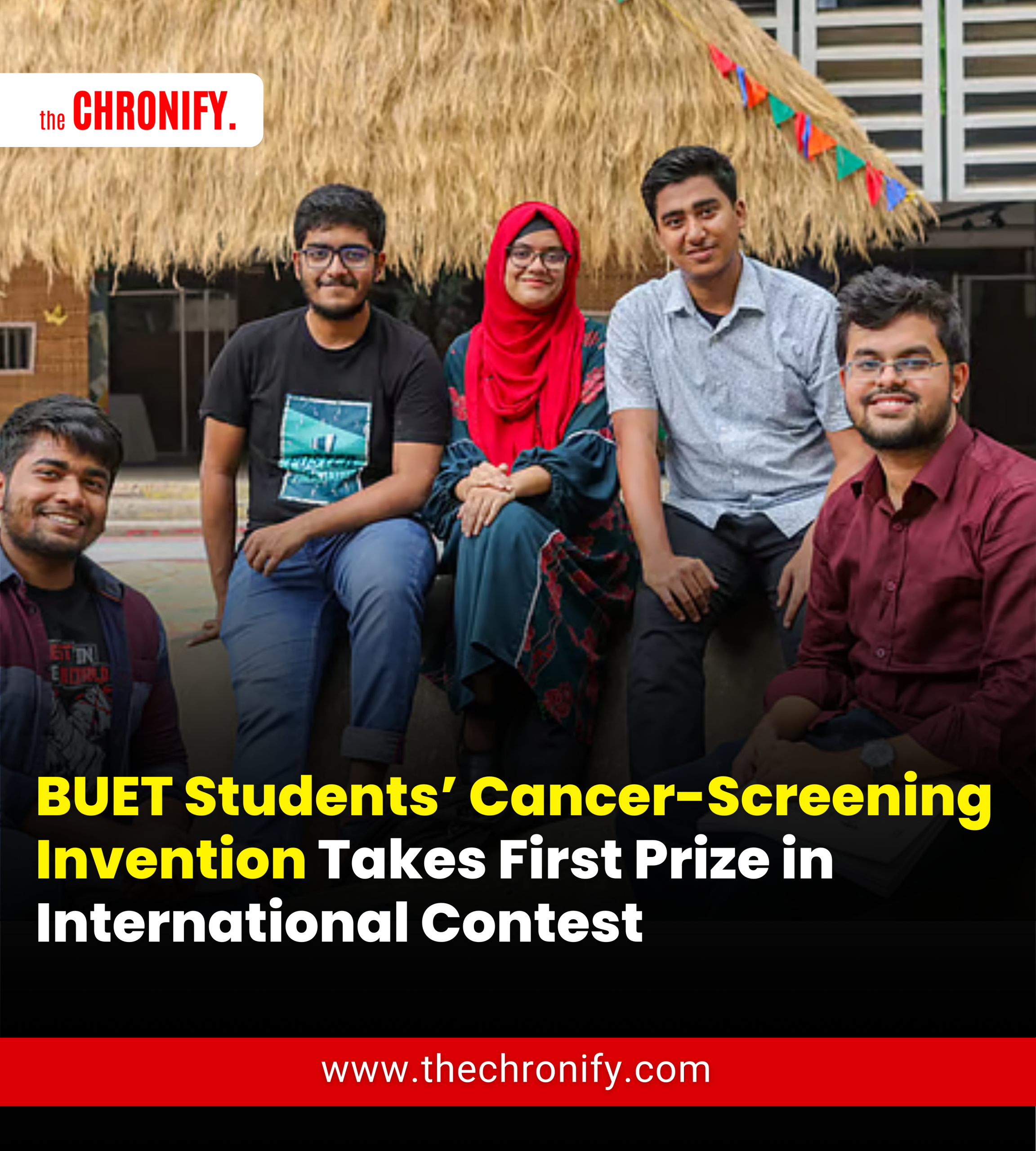A team of five students from Bangladesh University of Engineering and Technology (BUET), called Neoscreenix, has made history by winning first place in the prestigious international competition hosted by the Johns Hopkins Center for Bioengineering Innovation and Design. Competing against elite universities like Harvard, MIT, Stanford, and Caltech, the BUET team topped the “Digital Health Track” category, beating over 440 teams from more than 200 universities worldwide.
The team, comprising computer science and engineering students Fahmida Sultana, H.M. Shadman, Sadatul Islam, Md. Hasnain Adil, and Prithu Anan, developed a groundbreaking technology for early-stage breast cancer detection. This innovation allows women to self-check for potential breast cancer signs, a concept Fahmida had been passionate about due to her own family’s health experiences.
In the team, Hasnain led the app’s user interface, Sadat worked on backend programming, Shadman integrated artificial intelligence, and Prithu focused on the screening device hardware, with Fahmida steering the overall vision and presentation. While they had previously submitted the proposal in a national competition without much success, the feedback helped them refine the project.
The competition, backed by global medical giant Johnson & Johnson, announced finalists on March 10, with BUET impressively placing two teams in the Digital Health Track finals. On April 12, the final online round revealed Neoscreenix as the winner, though most team members were too anxious—or too doubtful—to even stay logged in for the results.
For their victory, Neoscreenix received a $5,000 prize, which they plan to reinvest in their studies and further development. The team expressed deep gratitude to their mentor, BUET professor Dr. Md. Sohel Rahman, as well as to medical students Jarine Tasnim (Dhaka Medical College) and Ribatul Islam (Rangpur Medical College) for their vital research support.
Looking ahead, Neoscreenix aims to adapt their technology to the needs of Bangladeshi women, especially in rural areas, raising awareness about breast cancer and expanding access to life-saving early detection tools.

